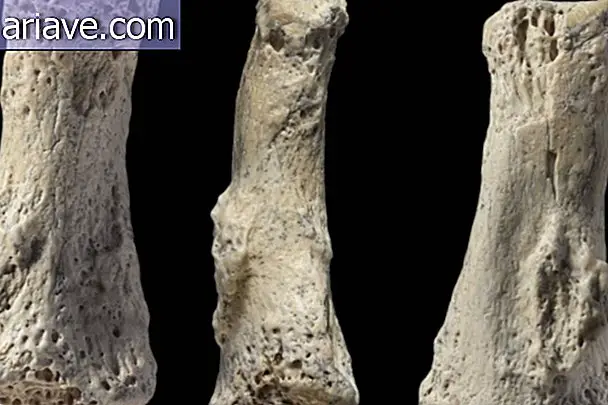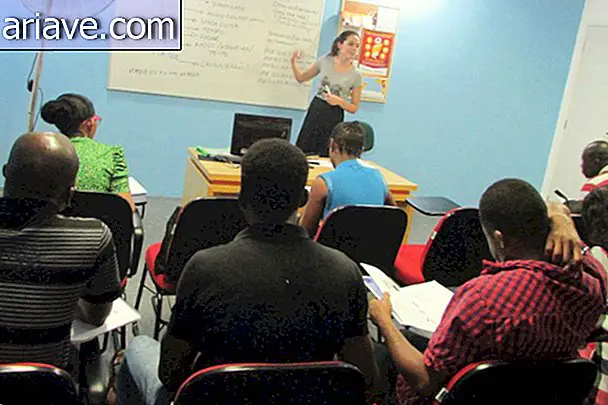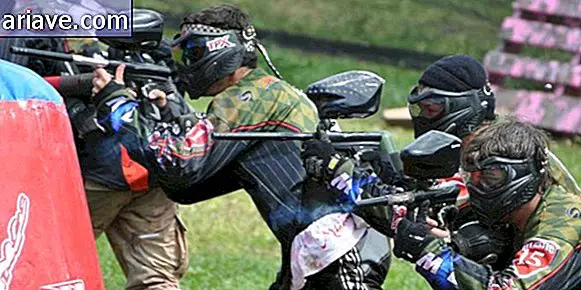Kangaroo Dad Helps Treat Premature Child
By Clarissa Thomé
Rio (AE) - With parental participation, the baby's recovery is faster and integrates the family. Hector was born at seven months of a hitherto quiet pregnancy. It was 40 centimeters and weighed 1.625 kilo. With preeclampsia and pancreatitis, Caroline de Souza, 27, had to be operated on hastily and went straight to the ICU. The father, the 29-year-old Carlos Vinícius de Lima Silva, a glass film applicator, had the role of welcoming Hector - first caressing the incubator until his son could nestle in his lap.
Silva is a “kangaroo father”, an adaptation of the preterm care strategy in which the baby is removed from the incubator at certain times of the day to have skin-to-skin contact, usually with the mother. Heitor was born at the Rocha Faria Maternity Hospital, the first in the state network to have a “kangaroo father”.
Municipal and federal hospitals already offer this service. “Babies have the fastest recovery when the parent participates in the process. But the great function is the integration of the family. The father starts to participate more in the care ”, says the unit's neonatology coordinator, Angélica Svaiter. Silva says that soon after the birth of the child, he barely looked at the baby. "My cousin died of eclampsia, I just wanted to know if my wife was alive, " he recalls.
When the baby was stable and left the ICU, the kangaroo sessions began. Three times a day, Hector is bound to his father's body with bandages. They stay at least an hour like this, three times a day. “The first time was indescribable. You can feel the beating of the little heart, the warmth of the body, ”he says. On Wednesday, Hector was crying in the incubator, but calmed down when he went to his father's lap. Silva turned away from work.
16-year-old student Raiane Batista Martinez says her daughter, Eloah, gained weight faster after she came in contact with her father, salesman Sidney Monteiro Júnior, 22. At two months, she weighs 1.8 pounds, but has reached 950 grams. “They are more connected. She is his life. Today he changes diapers, holds the syringe to give the milk, ”he says.

The Ministry of Health sets a goal of hospitalization in neonatal ICU for a maximum of 14 days. In 2012, this time reached 22 days at Rocha Faria. Lowered to 13 in 2014. “We follow good practices: baby breasts in the first hour of birth, we have kangaroo strategy, we offer the hot tub, shantala (massage). This has all contributed to shorter hospital stays, ”says Miliene Evangelista, nursing coordinator for the neonatal ICU.
Family
The kangaroo strategy proved so efficient that the Fernandes Figueira Institute of the Oswaldo Cruz Foundation extended the technique to grandparents as well - the “kangaroo family”. In 2012, the Kangaroo Unit, outside the ICU, was opened for this type of service. “Colombians are the creators of the kangaroo method. We went to Bogotá to get to know the work and, there, the experience is with the whole family. She has a lot of single, teenage mothers, and her grandmother participates in the care. This is a reality close to what we have in Rio's low-income population, ”says João Henrique Leme, IFF's head of clinical care for the newborn.
At Kangaroo Unit, mothers spend the day with babies close to their bodies. Parents have free access. So that the mother is not stressed with the long stay, the grandmother stays with the baby as she leaves. “With the 'kangaroo family', the baby gains weight and the family bond strengthens, ” says Leme. One hundred babies have already passed through the Kangaroo Unit.
Via At a glance











